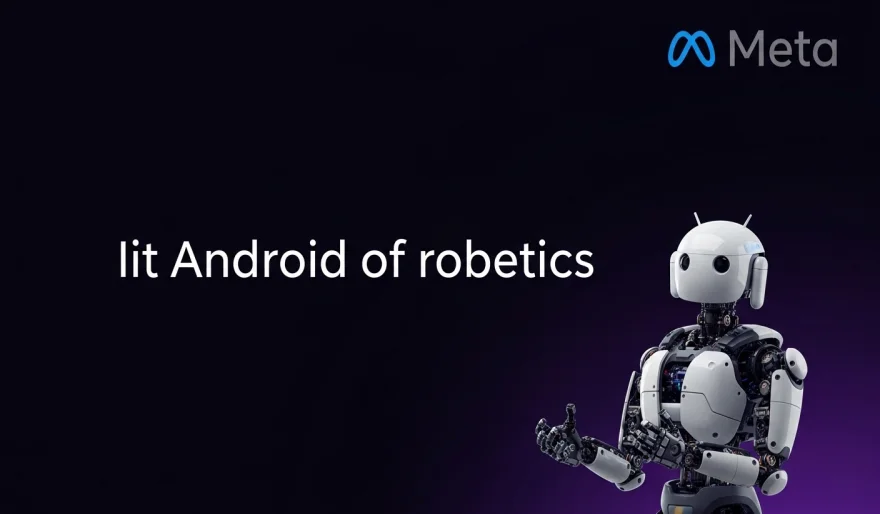Stay Ahead of the Curve
Latest AI news, expert analysis, bold opinions, and key trends — delivered to your inbox.
Meta’s Big Play: The Android of Robots
3 min read Meta wants to be the “Android of robotics” . By pushing an open-source platform, it hopes to spark a robotics boom like smartphones under Android. Big opportunity — but also big questions about control, data & the future of machines in our lives. September 29, 2025 15:54
Meta is making a bold play in the robotics world: it wants to become the “Android of robotics.”
The company is pushing for open-source platforms that could power the next generation of robots — the same way Android became the backbone of smartphones. Instead of every robotics company building proprietary systems from scratch, Meta envisions a shared foundation, where developers can innovate faster and cheaper.
Why it matters:
If Meta succeeds, robotics could see the same explosion of growth that smartphones did after Android democratized the ecosystem. Think thousands of companies building custom robots for healthcare, logistics, home assistance, and beyond — all running on a shared operating system.
Pros:
-
Scalability: Open-source lowers the barrier for robotics startups.
-
Innovation: Developers can focus on features, not reinventing infrastructure.
-
Ecosystem growth: Could speed up adoption of robots in everyday life.
Cons:
-
Meta’s control: Even if it’s open-source, Meta could still influence direction — raising monopoly fears.
-
Fragmentation risks: Just like Android, too many versions could create compatibility headaches.
-
Privacy & data: Robots powered by Meta software could collect vast amounts of user data.
The bigger picture:
If robotics really is the next computing platform, then the fight for its “Android moment” has just begun. Meta wants to own the foundation — but Google, Amazon, Nvidia, and others are circling too. Whoever wins won’t just shape how robots function, but how they fit into our daily lives.



















 AI Agents
AI Agents